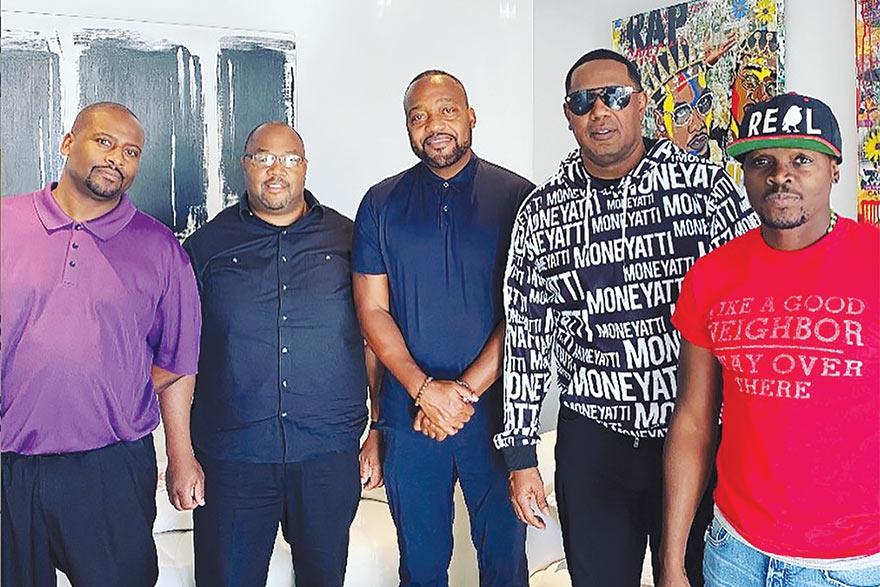In a snack aisle long dominated by faceless corporate brands and artificial mascots, James Lindsay has done something radically different—he’s built a multi-million-dollar empire by making hip-hop the flavor. His brand, Rap Snacks, has become not just a snack food phenomenon but a full-blown cultural movement. With packaging that features some of the biggest names in hip-hop and flavors as bold as the artists themselves, Rap Snacks is now a staple in convenience stores, college campuses, and recording studios across America.
But Rap Snacks is more than just chips with celebrity faces. It’s a vision. A mission. And a testament to what happens when branding, culture, and entrepreneurship collide with authenticity.
From Miami Streets to Supermarket Shelves
James Lindsay, a Philadelphia native with roots in Miami, grew up surrounded by the street hustle, music, and flavor of urban America. As a former marketing executive and lifelong hip-hop fan, he always felt the disconnect between corporate branding and the communities he lived in.
In the mid-1990s, Lindsay had a wild but powerful idea: what if snack food celebrated Black culture instead of ignoring it? What if hip-hop artists—the tastemakers of youth culture—weren’t just endorsing luxury brands but co-owning snack brands that sat in every gas station in the country?
In 1994, that idea became Rap Snacks. Early products featured cartoonish depictions of rappers, catchy slogans, and unique flavors. It started small, sold mostly regionally, and faced resistance from retailers and skeptics alike.
But Lindsay kept pushing—and evolving.
Reinvention, Authenticity, and Celebrity Strategy
The turning point came in the 2010s, when Lindsay began partnering directly with hip-hop stars and influencers—offering not just brand endorsements, but a stake in the product.
Rap Snacks became a platform, not a pitch.
From Lil Baby’s “All In” BBQ chips to Nicki Minaj’s Truffle Honey Popcorn, each flavor wasn’t just designed to taste good—it was carefully crafted to reflect the identity and hustle of the artist.
Artists were given creative input on packaging, marketing campaigns, and even flavor profiles. “It’s not just their face on the bag—it’s their soul in the snack,” Lindsay once said.
This model helped Rap Snacks achieve cultural legitimacy—something no other food brand targeting urban consumers had ever truly nailed. It also allowed the company to scale while staying rooted in community.
The Business Behind the Bars
Today, Rap Snacks is valued in the high eight figures, with annual revenue climbing past $70 million in 2024, according to sources close to the company. The brand is now distributed in over 30,000 stores, including Walmart, Target, Kroger, and 7-Eleven. Online sales, fueled by viral TikTok reviews and unboxing videos, now account for 25% of revenue.
In 2023, Lindsay launched Rap Snacks Noodles, expanding into ready-to-eat ramen with artists like Cardi B and Master P. The brand also inked a landmark streaming integration deal, where product sales helped fund rising musicians’ careers—a move that turned snack shelves into music promotion hubs.
Behind it all is Lindsay’s instinctive ability to blend commerce with culture. He calls Rap Snacks the “official snack of hip-hop,” but it’s also a masterclass in minority-owned brand strategy. The company has no traditional mascots—only real stories. No generic slogans—only lyrics. No borrowed cool—only embedded community.
Flavor with Purpose
Each Rap Snacks product is tied to a larger message. Bags are printed with motivational quotes from featured artists. QR codes link to mini-docs, music videos, or financial literacy tips. A portion of profits supports the Boss Up Foundation, Lindsay’s non-profit that focuses on entrepreneurship in underserved communities.
The brand has also collaborated with HBCUs for student-focused marketing campaigns and sponsors after-school music programs in Atlanta, Detroit, and Philadelphia.
In 2024, Rap Snacks introduced a “Hustle Hub” initiative—a pop-up retail experience where fans can taste new products, attend music performances, and even pitch startup ideas in front of local business leaders.
Not Just Snacks: A Full Lifestyle Brand
Under Lindsay’s leadership, Rap Snacks is evolving into a full lifestyle brand. In addition to food, the company now sells apparel, playlists, digital content, and limited-edition merchandise. The recently launched Rap Snacks Radio streams curated hip-hop mixes, artist interviews, and entrepreneurial tips.
A partnership with Amazon’s Fire TV has brought “Rap Snacks Presents,” a snackable docuseries exploring hip-hop culture, food, and business. Plans are underway to enter international markets, starting with the Caribbean and West Africa—regions where hip-hop, diaspora culture, and spicy flavors intersect.
Building the Blueprint: James Lindsay as a Cultural Entrepreneur
James Lindsay isn’t just running a snack company—he’s building a cultural blueprint. In a business world still often slow to recognize the commercial power of Black culture, Lindsay has crafted an empire that’s unapologetically rooted in it.
He’s a speaker, mentor, investor, and advisor to the next generation of Black and Brown entrepreneurs. He challenges legacy brands to show up authentically and calls out cultural appropriation while modeling cultural investment.



